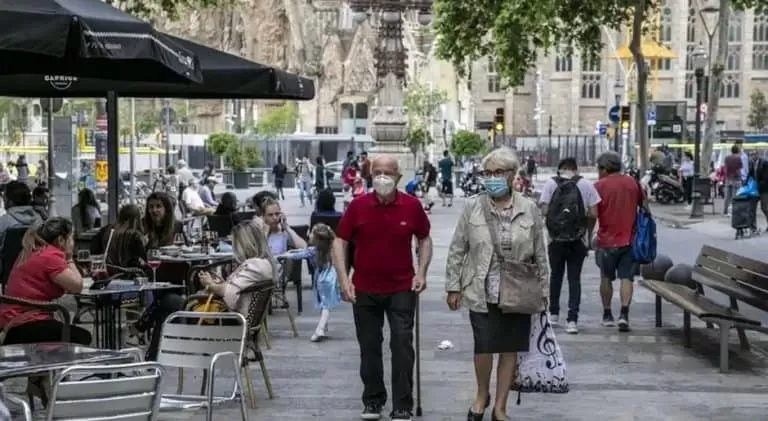

Last updated on September 11th, 2021 at 02:41 pm
Researchers at the University of Barcelona, one of Spain’s most prestigious universities, had detected the presence of the novel coronavirus in waste water samples collected here on March 12, 2019, the university said in a statement on Friday.
“These results, sent to a high impact journal and published in the archive medRxiv, suggest the infection was present before knowing about any case of COVID-19 in any part of the world,” the statement said.
The study was led by researchers from the Enteric Virus Laboratory of the University of Barcelona in collaboration with the public-private company Aigues de Barcelona, which is responsible for managing the water cycle in Barcelona’s metropolitan area, it said.
The study “has not been peer-reviewed,” the researchers said on medRxiv, an online archive distributing unpublished health sciences documents.
Earlier presence in Spain
“Although COVID-19 is a respiratory disease, researchers proved there are large quantities of the coronavirus genome in the excrements that reach waste waters. This situation made the waste water-based epidemiology a potential tool for early detection of the circulation of the virus among the population,” the statement said.
Since April 13 this year, the researchers have analyzed weekly the obtained samples in Barcelona’s two major water treatment plants.
“The levels of the SARS-CoV-2 (or novel coronavirus) genome coincided with the evolution of COVID-19 cases in the population,” Albert Bosch, professor at the Faculty of Biology of the University of Barcelona and coordinator of the study, said in the statement.
During systematic sampling, the researchers analyzed frozen samples from previous months, which revealed the growing apparition of the novel coronavirus genome between early January and early March this year, it said.
The findings brought the date of the coronavirus’ arrival in Spain even earlier — the presence of the virus was detected on January 15, 41 days before the official announcement of the first case of COVID-19 on February 25, said the statement.
According to the researchers, these results show the validity of the surveillance of waste waters to anticipate cases.
“Those infected with COVID-19 could have been diagnosed with flu in primary care by mistake, contributing to the community transmission before the public health authorities took measures,” said Bosch, who is also president of the Spanish Society of Virology.
The novel coronavirus has to date been contracted by nearly ten million people and killed half a million around the world since China’s central city of Wuhan first reported the outbreak at the end of 2019.
(shine)
The government's statistics regulator showed that South African inflation stayed at 3.2% during February and rose below the projected 3.3%.…
Keywords: Cape Town, African Energy Chamber, Africa, The 2025 African Energy Week (AEW) will host the top energy leaders from…
Recent research shows that Professor Abdessamad Faik believes Africa is at an important energy choice point as renewable-powered hydrogen allows…
The United States plans to shut down its Johannesburg consulate after Sandton Drive gets renamed to Leila Khaled Drive even…
The push toward renewable energy in Africa helps the 570 million people who currently live without reliable power access. Many…
The Algerian government prepares the hosting facilities for the Intra-African Trade Fair 2025, which will open its doors on September…
This website uses cookies.